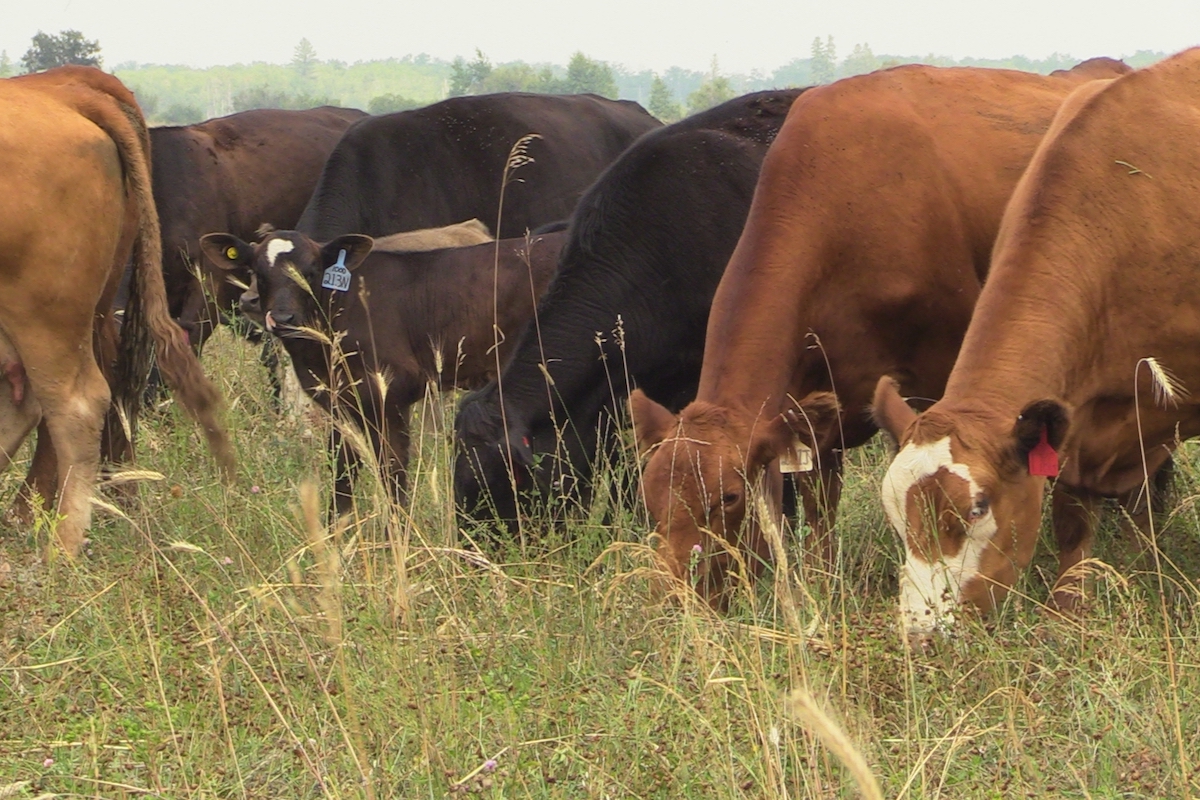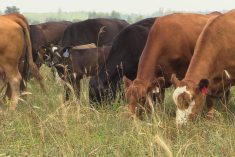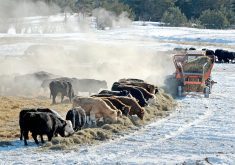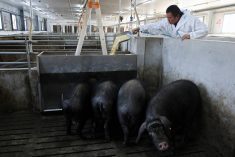Manitoba farmers planning to sell or transfer quota in a supply-managed commodity such as dairy or eggs will see a new levy imposed on the transaction.
The levy is one of a group of fees on farmers and agribusiness expected to raise $451,000 in the province’s 2010-11 budget, released Tuesday.
Finance Minister Rosann Wowchuk’s budget, which overall projects a $545 million shortfall in the coming fiscal year, plans a cut of 4.2 per cent or $9.39 million in expenditures for Manitoba’s agriculture, food and rural initiatives portfolio.
While a number of ag offices can expect small cuts in line items such as salaries and benefits, the budget shows substantial cuts to the province’s funding contributions for the AgriInvest and AgriInsurance programs.
Read Also

Beef industry weighs in on AAFC research cuts
The Canadian Cattle Association and Beef Cattle Research Council said cuts to federal research centres and programs will have long-term debilitating consequences for the beef industry.
AgriInvest, a program to cover farmers against small margin declines of less than 15 per cent, follows the previous NISA and CAIS model of a farmer account. The farmer’s own contributions, and federal/provincial matching contributions through the Growing Forward ag policy framework, fund the account.
AgriInsurance, meanwhile, is the production insurance program funded by farmer premiums and federal/provincial contributions, operated in Manitoba by the Manitoba Agricultural Services Corp. (MASC).
The province projects its 2010-11 contributions to AgriInvest dropping by 37 per cent, to $9.16 million, and its AgriInsurance contributions dropping 4.8 per cent to $43.49 million. Support for AgriStability, the federal/provincial ag income stabilization program, is projected flat at $39.14 million.
“Not usually positive”
The new levy on quota transfers is on the budget’s list of fee changes for 2010-11, as a “levy for producers on exchange/transfer of the value of quotas.”
The list also includes an increase in the licensing fees charged to pesticide and fertilizer applicators, and an increase in lease rental fees on Crown lands.
The three items combined are expected to contribute $451,000 in 2010-11, according to the budget papers.
“We recognize that the province is on a tight budget, but fees on agriculture are not usually positive in terms of the overall economy,” Ian Wishart, president of Manitoba’s general farm organization, Keystone Agricultural Producers, said in a release Wednesday.
“These types of fees will also put additional costs on beginning farmers or those expanding their family farm operations.”
Wowchuk’s budget speech also notes plans for “financial support to help farmers hardest hit by flooding in the north Interlake area in the last two years.”
The province, she said, will continue to work with farmers in the Interlake region between Lake Winnipeg and Lake Manitoba “to make sure they can access needed funds to get their crops in the ground this spring.”
Wowchuk’s budget also pledged support for hemp fibre processing in Manitoba’s northwestern Parkland region, and “a new grant to support the local production of biodiesel fuels,” specifically naming “the new plant in Arborg.”
That’s a reference to Bifrost Bio-Blends, a four million-litre per year canola-based biodiesel facility just south of Arborg, about 110 km north of Winnipeg.
On its website, the company, backed by local farmers and other investors, currently describes the facility as “nearing completion.”
“In general, this is not an agriculture-friendly budget,” KAP’s Wishart said Wednesday. “At a time when revenues are down, costs are up and deficits are the order of the day, we just hope Manitoba can recover as quickly as possible.”
The Manitoba Cattle Producers Association also weighed in Thursday on Wowchuk’s budget, criticizing its lack of support for the cattle sector and for agriculture generally, but did note its plans for improvements on key trucking corridors such as Highway 75 South, Highway 2 and Highway 1 East.
Road improvements “will hopefully further expedite more international trade and improve transportation,” the MCPA said. “Proper highway infrastructure is important to the cattle industry also because it aids in the healthy and safe movement of livestock.”
The MCPA also warned the planned increase in lease rental fees for Crown land will put an “additional burden” on cattle producers, but hoped it “will allow for the much needed improved rights of ‘informed access’ for those leasing Crown lands.”
Watch for the April 1 edition of the Manitoba Co-operator for more coverage of the province’s 2010-11 budget.














